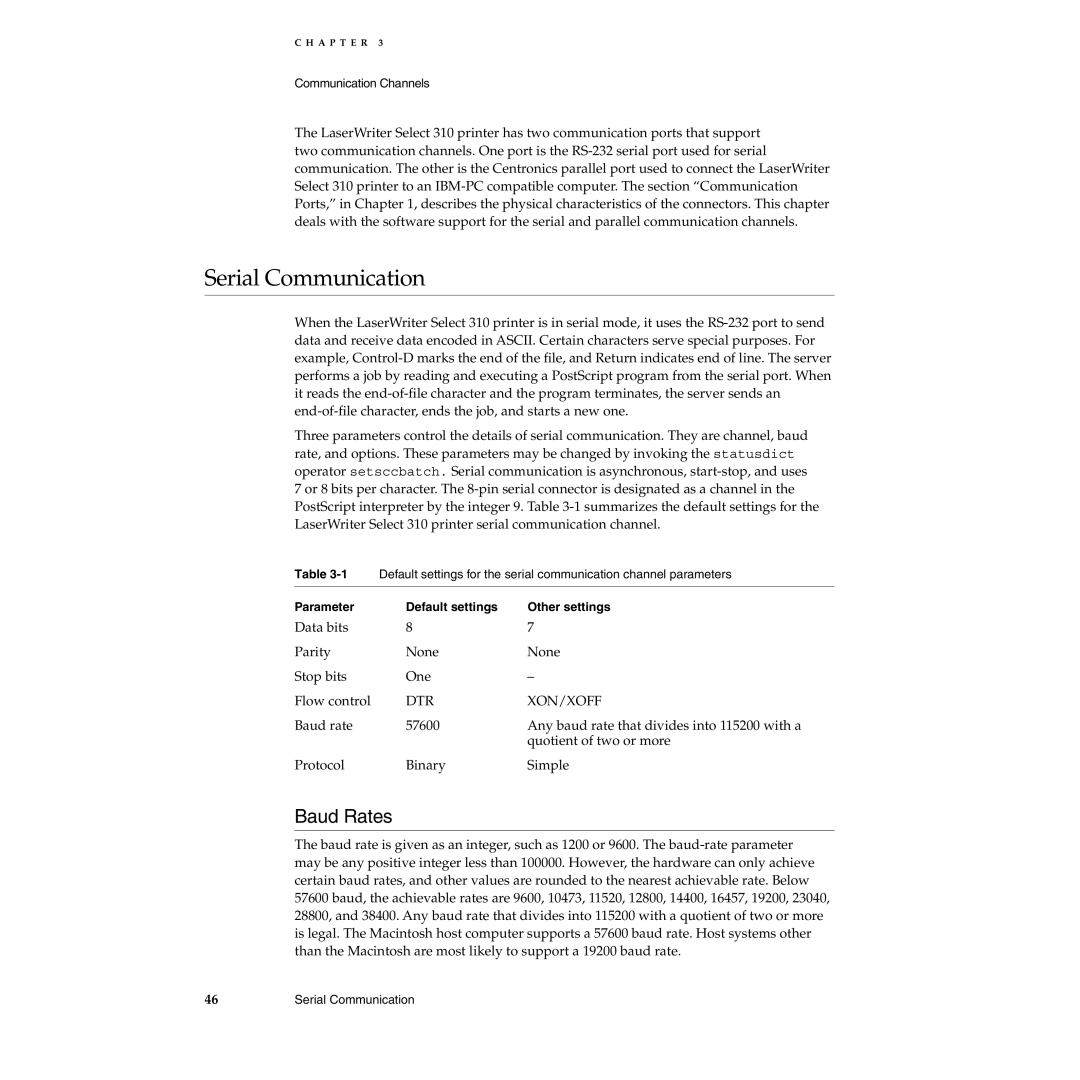C H A P T E R 3
Communication Channels
The LaserWriter Select 310 printer has two communication ports that support two communication channels. One port is the RS-232 serial port used for serial communication. The other is the Centronics parallel port used to connect the LaserWriter Select 310 printer to an IBM-PC compatible computer. The section “Communication Ports,” in Chapter 1, describes the physical characteristics of the connectors. This chapter deals with the software support for the serial and parallel communication channels.
Serial Communication
When the LaserWriter Select 310 printer is in serial mode, it uses the RS-232 port to send data and receive data encoded in ASCII. Certain characters serve special purposes. For example, Control-D marks the end of the file, and Return indicates end of line. The server performs a job by reading and executing a PostScript program from the serial port. When it reads the end-of-file character and the program terminates, the server sends an end-of-file character, ends the job, and starts a new one.
Three parameters control the details of serial communication. They are channel, baud rate, and options. These parameters may be changed by invoking the statusdict operator setsccbatch. Serial communication is asynchronous, start-stop, and uses 7 or 8 bits per character. The 8-pin serial connector is designated as a channel in the PostScript interpreter by the integer 9. Table 3-1 summarizes the default settings for the LaserWriter Select 310 printer serial communication channel.
Table 3-1Default settings for the serial communication channel parameters
Parameter | Default settings | Other settings |
Data bits | 8 | 7 |
Parity | None | None |
Stop bits | One | – |
Flow control | DTR | XON/XOFF |
Baud rate | 57600 | Any baud rate that divides into 115200 with a |
| | quotient of two or more |
Protocol | Binary | Simple |
Baud Rates
The baud rate is given as an integer, such as 1200 or 9600. The baud-rate parameter may be any positive integer less than 100000. However, the hardware can only achieve certain baud rates, and other values are rounded to the nearest achievable rate. Below 57600 baud, the achievable rates are 9600, 10473, 11520, 12800, 14400, 16457, 19200, 23040, 28800, and 38400. Any baud rate that divides into 115200 with a quotient of two or more is legal. The Macintosh host computer supports a 57600 baud rate. Host systems other than the Macintosh are most likely to support a 19200 baud rate.

